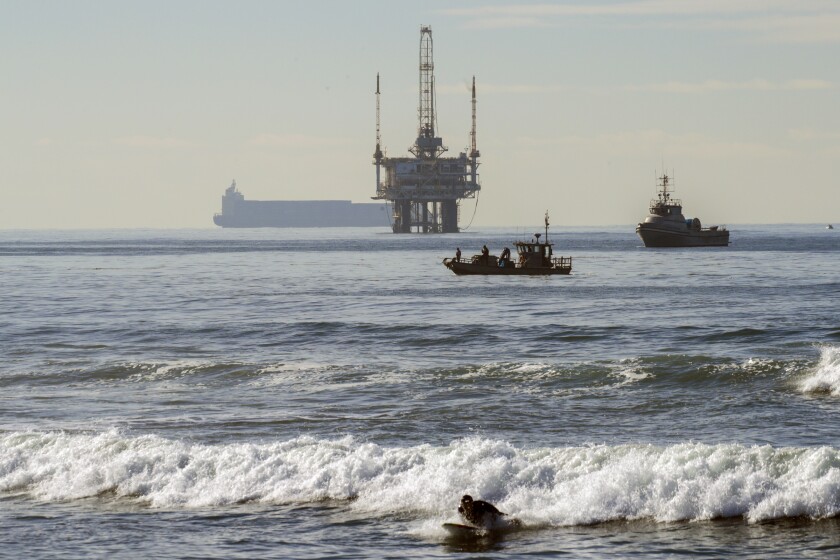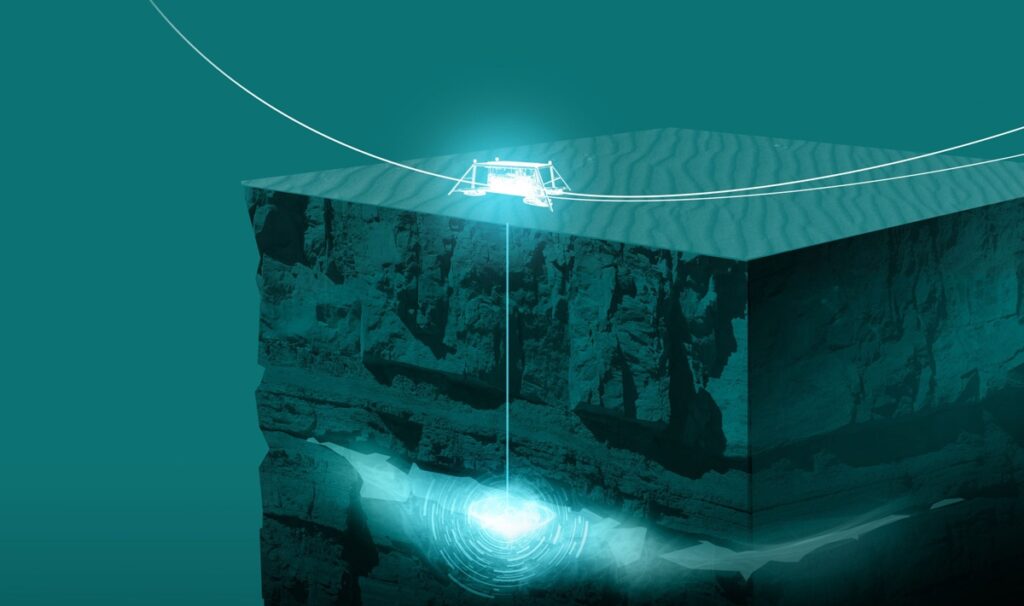I’m sharing this photo of the masterpiece Rig at Sunset. Next year, BOE will explore the painting’s symbolism and cultural significance.
May the glow of Rig at Sunset guide, comfort, and inspire you in 2022! 😃

Posted in offshore, Offshore Energy - General, Uncategorized, tagged Happy New Year 2022, masterpiece, Rig at Sunset on December 30, 2021| 2 Comments »
I’m sharing this photo of the masterpiece Rig at Sunset. Next year, BOE will explore the painting’s symbolism and cultural significance.
May the glow of Rig at Sunset guide, comfort, and inspire you in 2022! 😃

Posted in CCS, climate, decommissioning, energy policy, Gulf of Mexico, tagged CCS, DOE, GAO, infrastructure bill on December 28, 2021| Leave a Comment »
Quite a bit per the GAO, and their report only deals with DOE management of demonstration projects. The Infrastructure Bill authorizes $2.5 billion for commercial projects (and much more for other CCS purposes).
DOE provided nearly $684 million to eight coal projects, resulting in one operational facility. Three projects were withdrawn—two prior to receiving funding—and one was built and entered operations, but halted operations in 2020 due to changing economic conditions. DOE terminated funding agreements with the other four projects prior to construction.
DOE provided approximately $438 million to three projects designed to capture and store carbon from industrial facilities, two of which were constructed and entered operations. The third project was withdrawn when the facility onto which the project was to be incorporated was canceled.
GAO
So DOE’s actual success ratio was 0.182 (2 for 11) – not very compelling.
With regard to proposals for offshore carbon sequestration, who will be liable for future cost overruns, operating losses, infrastructure failures including pipeline and well leaks, and decommissioning costs? Who ensures that there will never be any leakage from CO2 disposal reservoirs? Does all of this fall on the Federal government?
Corporations that want to engage in carbon sequestration for commercial or other purposes should fund the projects with their own revenues or fees charged to the companies whose emissions they are collecting. The Outer Continental Shelf is publicly owned and those wishing to dispose of substances should pay a usage fee, be responsible for all costs, and be liable for pollution and damages.
Posted in California, Offshore Energy - General, pipelines, tagged California, pipeline spill, Platform Eva on December 27, 2021| Leave a Comment »


Per the LA Times, a DCOR pipeline has been identified as the source of a sheen in California State waters near Bolsa Chica State Beach. The pipeline transports oil from Platform Eva. All platform and pipeline operations in the vicinity have ceased.
Posted in decommissioning, energy policy, Gulf of Mexico, Offshore Energy - General, rigs-to-reefs, tagged aquaculture, GORI, Innovasea, rigs-to-reefs, rigs-to-roe on December 22, 2021| Leave a Comment »
An old offshore platform in the U.S. Gulf of Mexico is set to be converted into a working fish farm, creating a blueprint for future aquaculture re-use projects and providing repurposing options for old oil and gas assets.
offshore-energy.biz

Congratulations to the Gulf Offshore Research Institute (GORI) and Innovasea on their plans to transform an offshore Texas gas platform into a working fish farm.
For the complete list of alternative uses for offshore oil and gas platforms, see our Rigs-to-Reefs+++ page.
Posted in Offshore Energy - General, Uncategorized, tagged Northern Lights, Norway, offshore platform on December 21, 2021| Leave a Comment »

Posted in energy policy, pipelines, Regulation, tagged IMP, PHMSA, pipelines, Regulation on December 21, 2021| Leave a Comment »
At the behest of Congress, coastal areas and beaches are now designated as Unusually Sensitive Areas (USAs). Given that any offshore liquids pipeline has the potential to affect coastal waters or beaches, the rule would seem to require that all such pipelines be included in Integrity Management Programs, which are mandatory for pipelines that could affect USAs. (The IMP requirements would almost certainly apply to all DOT regulated offshore pipelines. Their applicability to DOI/producer pipelines is less certain. Of course, very little is clear and consistent in US offshore pipeline regulation.)
As one would expect, the recent Huntington Beach pipeline spill is among the incidents cited in the justification for this regulation. More surprisingly, the Santa Barbara well blowout was also cited. This incident occurred 53 years ago, was the result of a reckless drilling program, and had nothing to do with production operations or pipelines.
As noted in a recent BOE post, the regulatory regime for offshore pipelines is badly in need of overhaul. DOT and DOI, with inconsistent jurisdictional boundaries, regulations, and approaches, have primary responsibility and multiple regulatory entities have roles.
Lastly, PHMSA seems to have inadvertently posted a highlighted copy of the new regulation. Nothing at all scandalous (looks like someone was highlighting potential talking points), but possibly amusing to other regulation nerds. 😃
Posted in CCS, climate, energy policy, Gulf of Mexico, Norway, Offshore Energy - General, tagged CCS, Exxon, Lease Sale 257, Norway, NPD on December 20, 2021| Leave a Comment »

Several actors have approached the ministry with a desire to be allocated two specific areas for storage of CO 2 . One area in the North Sea and one in the Barents Sea were therefore announced on 10 September in accordance with the storage regulations.
By the application deadline of 9 December, the ministry had received applications from five companies. The Ministry will process the received applications and allocate area in accordance with the storage regulations during the first half of 2022.
Ministry of Petroleum and Energy, Norway
Contrast the situation in Norway with Exxon’s apparent attempt to acquire 94 Gulf of Mexico leases at Oil and Gas Lease Sale 257 solely for CCS purposes. BOEM’s Notice of Sale made no mention of CCS, and there had been no environmental or economic assessment of CCS activity.
And how much will the public pay for grand CCS ventures that (although interim measures) will take years to initiate, add new safety and environmental risks, and may never achieve their objectives? The public burden will no doubt include direct subsidies, tax credits, increased petrochemical prices, and the erosion of purchasing power associated with the resulting inflation pressures.
Posted in energy, Health, Regulation, tagged appeals court decision, Oilfield workers, vaccine mandate on December 18, 2021| Leave a Comment »
WSJ story on oilfield workers. Highlights:
“I don’t like to be forced to do anything. I almost want to just do the opposite when someone tells me, in that manner, you’ve got to do this.”
WSJ